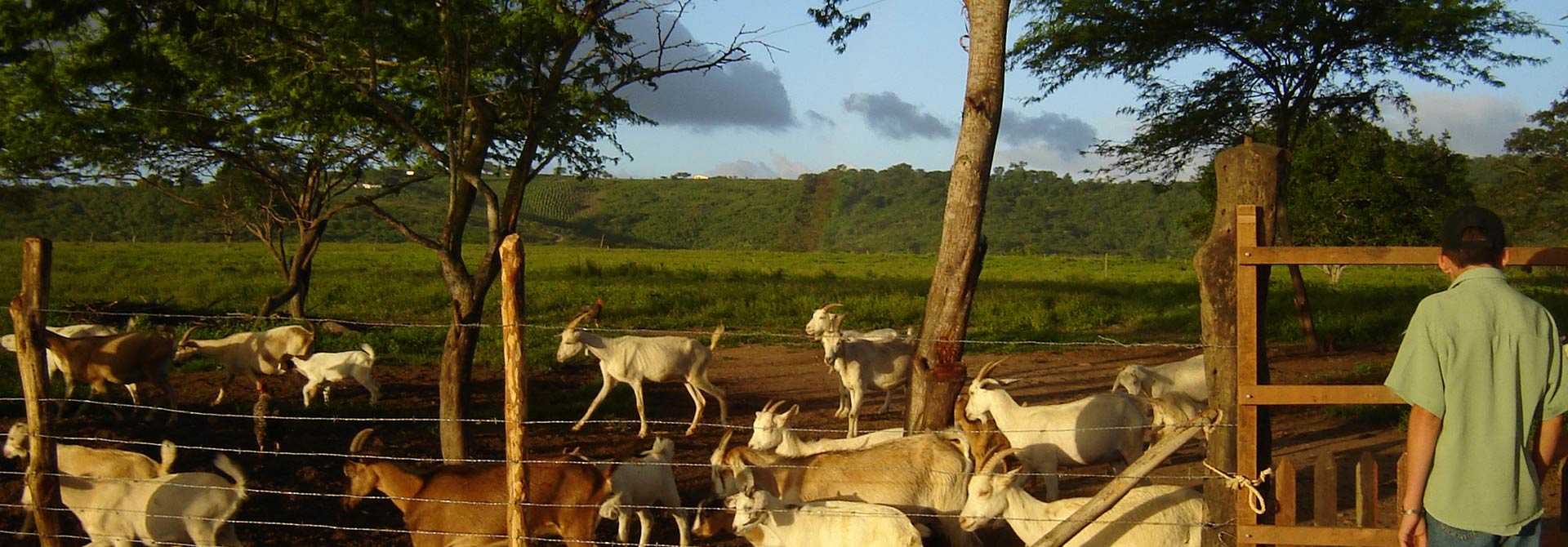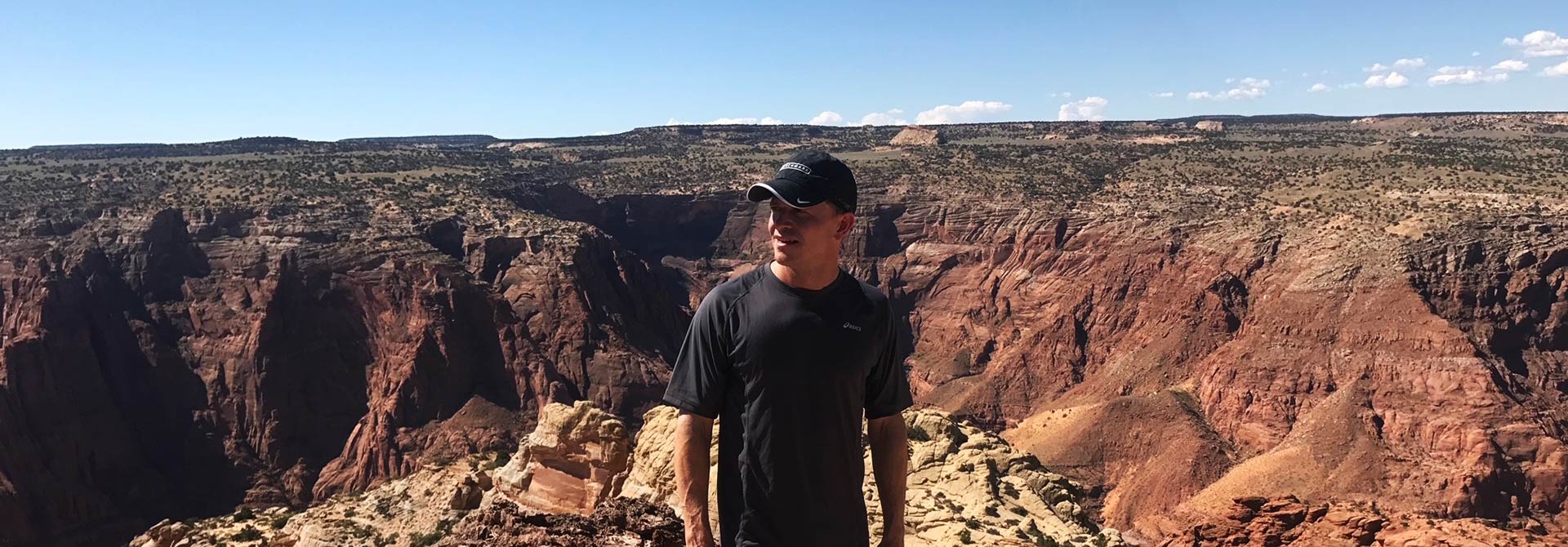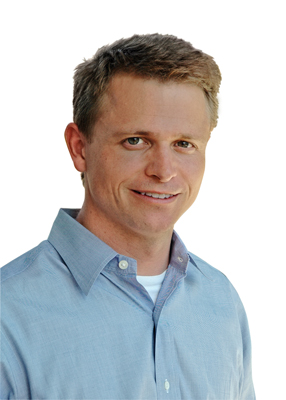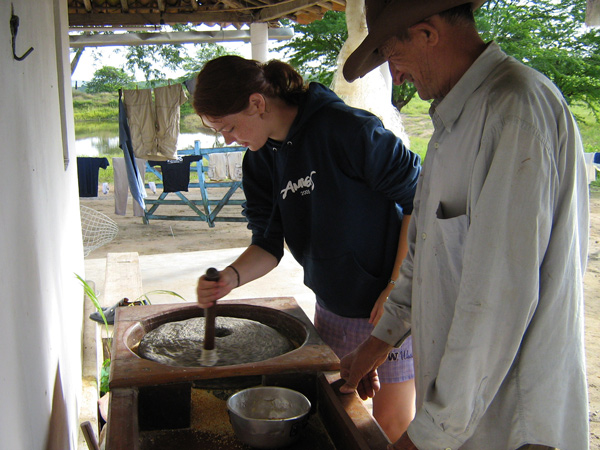In Conversation with Peter Fenton
 About Peter
About Peter
Peter Fenton is a partner at Benchmark, a venture capital firm. His current Board Seats include Airtable, Buoyant, Clickhouse, Cloudera (IPO: CLDR), Cockroach Labs, Digits, Docker, Elasticsearch (IPO: ESTC), Robocorp, Slashtalk, Sorare, TimescaleDB, and Wildlife Studios.
His previous investments include Coremetrics (acquired by IBM), EngineYard, FriendFeed (acquired by Facebook), Hortonworks (IPO: HDP), JBoss (acquired by RedHat), Lithium, New Relic (IPO: NEWR), Quip (acquired by Salesforce), Optimizely, Reactivity (acquired by Cisco), Revinate, SpringSource (acquired by VMWare), Terracotta (acquired by Software AG), Twitter (IPO: TWTR), Wily Technology (acquired by CA), Xensource (acquired by Citrix), Yelp (IPO: YELP), Zendesk (IPO: ZEN), Zenly (acquired by SNAP), Zimbra (acquired by Yahoo!), and Zuora (IPO: ZUO).
He has an MBA from Stanford Business School and a BA from Stanford University.
Peter has four children and lives in San Francisco. He is also on the boards of the Grand Teton Music Festival, San Francisco Opera, and the California Academy of Sciences.
Peter Fenton joined AMIGOS in Brazil in 1989 and returned in 1991. He spoke with President & CEO Sara Nathan about how experiences like AMIGOS impact young people and why it’s important to step outside of yourself and open yourself up to new experiences—at any age.
Sara Nathan:
Let’s start with your AMIGOS experience: where did you go and what was your project?
Peter Fenton:
I did AMIGOS twice in Brazil. My first experience was in 1989 on the coast, working on a sanitation project, digging latrines. It was the first year that AMIGOS was in Brazil, and there were some interesting start-up-like experiences trying to coordinate with Fundação CESP, our liaison in the government.
It all worked out in a pretty classic AMIGOS way, even through uncertainties as to whether or not they wanted to have citizens of the United States visiting less-advantaged parts of Brazil. I think there was a question from the Brazilian government as to whether or not we were more of a burden versus a help.
At the end of the summer, I think we all as volunteers had a transformationally positive experience. The work provided the experience of connection and was really radically expansive from an experience standpoint for all of us who were there.
I went back to Brazil in 1991 after my first year in undergrad, and I volunteered in a coastal village and did sanitation work again. And so, I suppose that’s the repeat customer positive: I had enough of a good experience the first time that I wanted to do it again.
I was in the same role [as a volunteer]. I wasn’t a program staff leader or anything like that—I had no mobility in the AMIGOS hierarchy. That was fine with me because the direct connection with the work itself is what I found to be most attractive. That second summer was different and yet equally rewarding in its own way.
One of the components I think we underestimate is the power of not just changing your world perspective—in being in a different place with people where you’re not a tourist, you’re living with them—it is a much more porous boundary. My experience with the language and that aspect of immersing myself in a new language was so enriching. It seems like wherever we travel, we get to these places where the language always defaults to English, where there’s been a grooved pathway of English speakers forcing the local population to accommodate.
Well, the places that AMIGOS goes, that hasn’t always happened. It encourages your language skills in a way that I found to be the most unexpected personal benefit. I got to really experience life in a different language, where there wasn’t that default back to English. By having no choice but to speak Portuguese—and not just any Portuguese, it was sort of a particular dialect of Northeastern Brazilian Portuguese—I had a really enriching experience.

Sara:
Has your understanding of the impact of AMIGOS changed since the time when you were a volunteer?
Peter:
I think we are storytelling animals. Our narratives carry not just an interpretive power in our experiences, but they can shape those experiences. As I look back at my time at AMIGOS, there’s that narrative impact of the story I tell myself. I perhaps over-remember and amplify the aspects that I most enjoyed.
One of the things that stands out and that shaped me in my undergraduate work was the questioning of the dominant theory of human flourishing that we tend to equate with a consumerized society. And these were not consumerized societies, if you want to call it that. They are living in different ways.
[AMIGOS provided] a window into a really different life and different sources of joy. I suppose—and I say this in a way that is self-conscious—I’ve romanticized a little bit the levels of human connection, presence, attention, maybe even joy, that are available to us without all of this [gestures at surroundings]. And that stuck with me through my undergraduate years in questioning the linear path that people take: the desire to get a job, so they can get enough wealth to acquire a house and a golf membership, and then one day have the pleasure of retiring to do that every day.
That narrative is so offensive to the lived experience of people where there was not “plenty” in the classic sense of plenty—food, health care, and all that—but there was plenty of human connection. And there was plenty of laughter, humor, and manifest joy. That really stuck with me and undermined the naive confidence that I probably had going into the AMIGOS experience. The dominant consumer “wealth is happiness” worldview was a stark contrast to that.
Now, I say that’s the romantic version, because there was also suffering—suffering that I would put in a category of being hard to accept. To be numb to it and say this is a beautiful state of nature where people are flourishing. No. There was a prevalence of unnecessary physical suffering and things that could have been addressed with a more systemic approach. You always want to do more.
AMIGOS allows you to hold the multitudes of “ways of being” in a more grounded way. And you don’t get that “studying abroad.” I was lucky enough as an undergrad to study abroad and that’s different. With AMIGOS, you’re living. You’re trying to serve. Obviously, service is the most enriching thing we do as humans. And I know the service was not lost on me. We always ask, “Were they serving us or are we serving them?” Because with this experience, how can you measure that?
I went in with a mindset of I want outcomes. I want to know that I’m driving some visible improvement in the quality of life for these people. But what was really going on was probably more the other way around. In my case, starting as a 16-year-old, and then as a 19-year-old, someone who had an upper-middle-class, affluent background, privileged beyond any measure of fairness. By blowing up that construct, it allowed me to have so much personal growth and perspective. And I don’t think that my life would have been the same without that [AMIGOS] having happened.
With AMIGOS, you’re living. You’re trying to serve. Obviously, service is the most enriching thing we do as humans.
Sara:
That’s a wonderful segue into the next set of questions that tie into thinking about AMIGOS in our work and supporting youth leadership development. We exist to empower young people, to open up their minds, and foster their commitment to a broader world outside of their unique social bubble, their immediate family, household, etc.
Thinking about where you are today in your career and at this point in your life, what skills and experiences do you think young people need in order to succeed in not only their careers, but their lives?
Peter:
From a personal lived experience, specifically relating to AMIGOS, we back entrepreneurs who are dropping out of a system that they didn’t create. And so much of what goes on in our society are mechanisms that teach people who want to get a “cookie.” You did well in school, you get an A. You did this, you get this. There’s this sense that performance in a conditional self-worth model is the way you get ahead. As an undergraduate at Stanford, I felt that a lot of my classmates were there for reasons that related to proving themselves to someone else. And then there were also those who I think were more directly connected to an innate sense of what they wanted out of their life.
Looking at the AMIGOS experience: Do you want to go because it’s going to look good on your college applications? Do you want to go because you have to do community service to get ahead in this world? And when you strip all that away two weeks into your experience, there’s a good probability that your original motivation has fallen away, and you’re just there. And then you have to reconcile, “Why am I here?”
I’ll be honest with you: my mother encouraged me to join AMIGOS, saying, “It might look good to show that you’re more than just a privileged member of the white future patriarchy and that you actually are a decent human being beneath it all.” But once you are in the experience, all that falls away: the backstory, the system… I think in these experiences that are liminal, that get you out of the “well, I’m here because…” and then you’re just there. What I relate to—in my teaching people in their own lives—is to get off of that hamster wheel. Sadly, I see a lot of people in their thirties and forties who are introspective about having less fulfillment than they had hoped for participating in a system they didn’t create.
That’s why I back entrepreneurs who probably actually do better if they got bad grades. Not all of them—Jeff Bezos was a perfectly good student at Princeton—but there are a number of founders who realized that getting a “cookie” from a system that they didn’t create was not fulfilling. In the blip of existence, we’re a brief crack of light between two eternities of darkness. Did that matter that you got that job? I think one of these things that you look for in the life experience and the arc of life is that you leave home and you leave those systems, and in that departure, you will allow for the opportunity that something comes into your awareness and consciousness that is profound, personal, and offers a deeper level of fulfillment.
That applies in careers as much as it does moving from your teenage years to the early part of your academic life. Experiences that are dislocating are really important. As a society, our major thresholds of change are getting a driver’s license, getting a degree, whatever that means. And they’re meaningful—I get it, they’re rites of passage—but I don’t think many of them are transformations. I think there are experiences that can invite transformation earlier in one’s life.
And if you look at the 200,000 years of human existence, in the last couple hundred years we seem to have let those transformational experiences become less transformational. This is specific to AMIGOS, but it relates to the development of one’s whole self: you have to go into experiences that will be uncomfortable. That loss of comfort might allow something far more compelling to come into your life.
You have to go into experiences that will be uncomfortable. That loss of comfort might allow something far more compelling to come into your life.
Sara:
What other experiences did you have growing up that unlocked that transformation for you as a person and as a leader?
Peter:
I would say the other dominant experience was doing NOLS, which is the National Outdoor Leadership School. It’s that leadership aspect—you’re just camping, but you’re learning again in a liminal state from the comforts that you leave behind, having weeks of existing.
Today, the number of things that can activate parts of us that undermine our well–being—technologies, many of which we’ve invested in, so I feel like at some level I’m accountable for the seepage of technology into our lives—things that increase stress levels, that increase the default–mode network in the brain, which means you’re more self-conscious, you have a more egoic existence, which I think is ultimately not good. That’s my own judgment, but I feel pretty strongly about that. NOLS was like AMIGOS in that it took me out of that.
[During NOLS] I spent three weeks with no devices. Of course, back then we didn’t have devices, so it was more like no Walkman to listen to music! Those experiences shook me up and threatened the linear path of the system and getting good grades. And there was a sense of “there’s something far more important in life than conditional self-worth in a system you didn’t create.”
I think that ultimately allowed me in my personal career to realize the fallacy of the meritocracy. Nobody has less faith in the concept than me. I was blessed with so many second chances that I’m left with a sense of shame, if you want to call it that. If I had been born in a different place, time, or socioeconomic status, we wouldn’t be having this conversation. I think guilt is different, but guilt is not doing anything about it. I have a measure of passion to ensure that I’ve contributed to the advantages I had. AMIGOS is recognizing that historically the person who did AMIGOS was of a certain socioeconomic profile and saying this is a kind of experience that should be available to a broader number of people who are in the developmental process of their life because it is transformational.

Sara:
We are certainly making strides in that area, though there is much work left to do. As we think about engaging more and more students what advice would you give young people who are searching for direction and purpose in their own paths?
Peter:
I’ve found that experiences that break out of your common patterns, that are perhaps uncomfortable at times but invite something outside your day-to-day routines, can awaken that sense of purpose. I don’t believe anyone mechanically forces their purpose on the world. I think you are responsive in a way.
To give an analogy, if you ask an artist or poet or novelist, “where did that idea come from?” They will take you back to their sources. But then, what’s the source of that source? And there’s this sense of awe, of not knowing where it came from.
I’ve worked with great entrepreneurs, and they didn’t just wake up with this egoic sense of imprinting the world with their purpose to make it better. It doesn’t happen that way. It happens through attenuation, awareness, presence—and then there are preconditions that invite them.
My advice to young people is to seek experiences that will allow that to rush in. If you think, “I’m doing AMIGOS to help people who are disadvantaged,” I don’t think that’s the way you’re going to have the best experience. If you’re saying, “I’m going on an experience that’s going to be uncomfortable, and in the process, I’ll be able to serve something bigger than my consumption of more social media,” then you’re allowing for possibilities that something far more profound can rush in. And it may be that you take an interest in something completely unrelated to what it is you went out to do, but by creating a different background, by shaking up the frame of it, I think you allow for something that picks you more than you pick it.
I think you have to find experiences. I encourage people at any moment in their lives to do this. Take travel as an example. A lot of people are basically going through the world, staying in the same antiseptic, international hotel experience with probably the same food they had at home. They stay in that shell or protective cocoon—from the airlines they fly on, to the car services they take. By breaking out of that shell, you start to really open yourself to growth and to experiences that defy any verbal description.
Part of what AMIGOS viscerally teaches you is to be part of the world. Is it risky? Maybe, but you’re not putting your life at risk in any real sense any more than you would anywhere else in the world. You’re opening up the ability to experience life in a different context, in a complete sense.
As we age, we risk losing that. And I always think about youth. One of the things I think about AMIGOS as a program for young people: youth is a state of mind. And I think a lot of people, as they age, prematurely start to get into that cocoon of not wanting to have experiences that are uncomfortable. And yet I think in life, we don’t necessarily seek out the things that we’re most proud of because they tend to be the most challenging and can be stressful. But they’re deeply rewarding. I think AMIGOS teaches you that’s something you want to keep with you.
I think in life, we don’t necessarily seek out the things that we’re most proud of because they tend to be the most challenging and can be stressful. But they’re deeply rewarding. I think AMIGOS teaches you that’s something you want to keep with you.
Sara:
As I hear you talking about these experiences that are transformational and uncomfortable, it makes me think of the discomfort that many companies, organizations, and people endured due to the pandemic. They faced disruption and being in an uncomfortable place, but out of that came transformation. I’m curious to hear what you see as new possibilities right now for innovation and change coming out of this particular moment in our history.
Peter:
I’d start by saying it’s not fair. One of the things the pandemic has done is it amplified many of the economic, if not other, divides in our world.
The technology industry was a major beneficiary. Many of the things that were on the horizon we were forced to do sooner versus later, and they increased our use of technology versus decreased it: everything from video conferencing, to digital experiences, broadly defined. It accelerated and benefited technology, and that’s been great. We have been pulled three to five years into the future.
Our usage of digital experiences was already growing at a compounding rate every year. We have been invited to use the pandemic as a compelling event or as a catalyst to question some of the things that we learned growing up that were no longer serving us. One example is: Where do you work? We had a theory of work that said you go and you get into a car, you go to an office building, you sit, you talk by the conceptual water cooler. There’s no water cooler anymore.
I think people realize that’s one way of working, and it’s not particularly integrated. It’s a pretty compartmentalized life, where your family’s sort of left outside. By dislocating that premise, we’ve realized there’s a lot of work we do in this world that doesn’t need to be in that form. I’d say a super–majority of the engineers woke up to the reality that they were more productive without having to deal with the commute and the in-office and the interruptions. But we’re now at a point where we’re discovering there are some things that we’re missing.
On the human connection side, what are the inputs that you’re not getting any more on Zoom and screens? I think we are awakening to the sort of starvation from more human connection that a digitally quarantined pandemic life is not providing. How that gets reshaped with these new realities is a great opportunity for innovation. Instead of having “always in the office” culture or “always remote” culture, let’s discover other models of human collaboration that we’ve been missing. Those that we can’t necessarily describe, but we feel it.
One of the big insights is that we’re coming back to hybrid companies, where people are part-time in the office, part-time at home. How do you create the kinds of social richness that your work life had brought to you? For example, human connection, non-structured times, the fatigue of the back-to-back Zoom meetings versus the ad hoc conversations that can occur. I think this is a broad question we’ve all struggled with. Probably the other big theme of what the pandemic has taught us is the compartmentalization of our life wasn’t necessarily serving us.
 Sara:
Sara:
We’re experiencing this right now at AMIGOS. We’re basically all remote, and that’s a huge change from 10 years ago, when I came into this organization for the first time. Some other changes were also driven or escalated by the pandemic in terms of the speed at which we’ve been rolling things out, with virtual programming, bringing in Latin American students as volunteers, and opening up programming for younger teens.
I’m curious to hear what excites you the most about AMIGOS today? Is it the same as what you found for yourself in Brazil? Are there other initiatives that are exciting you?
Peter:
What excites me is very linked because the primary experience is still the truth of AMIGOS. It’s an individual—wherever they are from—being invited to see the world in a different context and experiential light. That remains true in the work as it’s being expanded, and it seems really encouraging. But it’s also encouraging because it’s coming back to that same fundamental question: Why do you do this?
And yes, you want to change outcomes. If you asked me when I was 18, I would have said AMIGOS only exists to improve the health of the people we’re serving. I was too naive to realize that it actually exists for the experience. Probably we experienced a lot more change than they did. AMIGOS is staying true to that, without becoming too righteous or having a macro agenda, by having faith that each of us has our own ability to see the human side and has whatever it is that motivates us to serve, be awakened.
Beyond that, I remain curious to learn more about AMIGOS in 20 years. What are the compounding directions that you’re taking it that will allow for more of that primary experience, the truth of AMIGOS to be a bigger part of our life?
What excites me is very linked because the primary experience is still the truth of AMIGOS. It’s an individual—wherever they are from—being invited to see the world in a different context and experiential light.
Sara:
I think that your words resonate with many alumni – the profound impact of AMIGOS is found in awakening our shared humanity. And with that, thank you so much, Peter, I really appreciate you taking the time.
I want to leave you with one reflection from a volunteer who was in Nicaragua this summer. I think this quote speaks well to what you’ve been sharing and your perspective:
“This experience has changed me so much. It changed how I think and live. It motivated me to do something better and bigger. I don’t want to just go home and waste this experience. I want to change the world and the community I live in.”
Peter:
That’s really encouraging. I appreciate you sharing that. It matters more even now, it’s so vitally important. I appreciate all the work you all are doing.


 About Peter
About Peter Sara:
Sara: